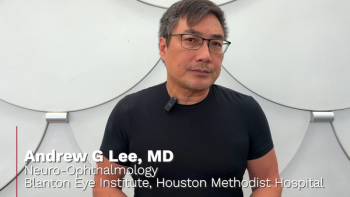
At ASRS 2025, Andrew G Lee, MD, gave key insight into the world of a neuro-ophthalmologist and why and when a retina specialist should consult a neuro-ophthalmologist

At ASRS 2025, Andrew G Lee, MD, gave key insight into the world of a neuro-ophthalmologist and why and when a retina specialist should consult a neuro-ophthalmologist

Optomed Lumo launches a versatile handheld fundus camera, enhancing retinal imaging accessibility in diverse healthcare settings across the US.

Vizz (Lenz Therapeutics) is the first and only aceclidine-based eye drop for presbyopia and is also the first daily solution to correct vision for up to 10 hours.
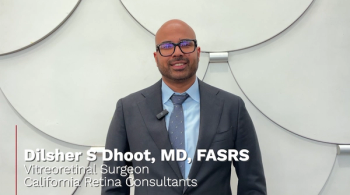

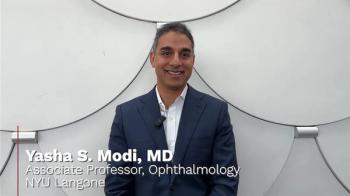
Yasha S. Modi, MD, discusses promising results from the VERONA study on EYP-1901, a potential treatment for diabetic macular edema.

EyePoint Pharmaceuticals completes enrollment for the LUCIA trial, advancing DURAVYU's potential as a new treatment for wet AMD.

Opus Genetics partners with the Global RDH12 Alliance to advance gene therapy for inherited retinal disease, aiming for FDA application by late 2025.

The Eye Care Network connected with Haller to hear her vision for Wills Eye Hospital, her priorities as CEO, and what lies ahead for the field of ophthalmology.
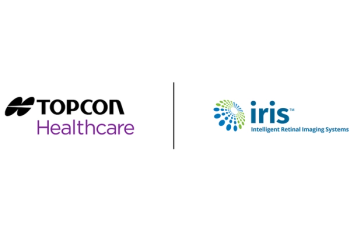
Integrating IRIS technologies will allow Topcon to improve retinal disease diagnostics and referrals from primary care providers.
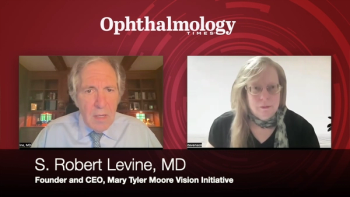
The DRD Cure Accelerator, highlighted at the CCOI-Stanford Summit, is a global initiative advancing clinical research and collaborations to eliminate vision loss from diabetic retinal disease.




In preparation for the American Society of Retina Specialist (ASRS) annual meeting being held in Long Beach, California, Ophthalmology spoke with Gaurav Shah MD, FASRS, Program Chair of the 2025 event.
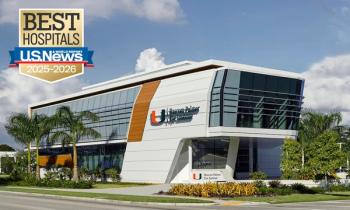
The annual Best Hospitals report from US News & World Report compares more than 4500 hospitals across 15 specialties and 22 procedures and conditions.



LENZ Therapeutics previously licensed Greater China rights to CORXEL for the development and commercialization of LNZ100 in April 2022.
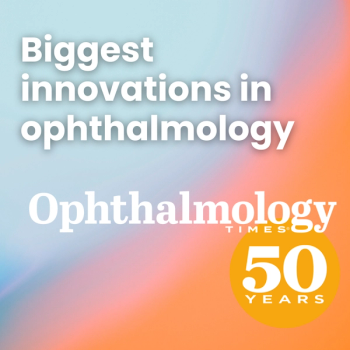
To mark Ophthalmology Times' 50th anniversary, we invited top experts to reflect on the most significant innovations in ophthalmology over the past five decades.

Findings from a phase 2 clinical trial support the therapeutic potential of ADX-2191 in patients with retinitis pigmentosa

A recent study reveals that many Americans neglect eye care due to cost and urgency misconceptions, despite the significant impact on daily life.
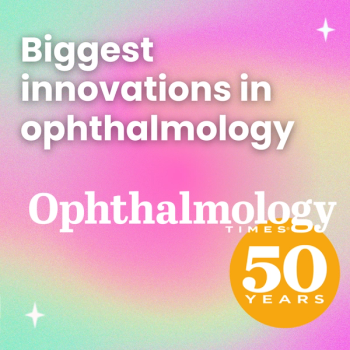
To mark Ophthalmology Times' 50th anniversary, we invited top experts to reflect on the most significant innovations in ophthalmology over the past five decades.



Vonaprument has received fast track designation from the US Food and Drug Administration.

KIO-104 is for the treatment of a wide range of ocular diseases, including ocular inflammation, uveitis, age-related macular degeneration (AMD), and complications as a result of refractive surgery.

Australian researchers highlighted the overlooked ocular risks surfers and divers face from UV and blue light exposure.

At the CCOI-Stanford Summit, Goldberg calls for collaborative trial models that could redefine efficiency and standardization in ophthalmology research.
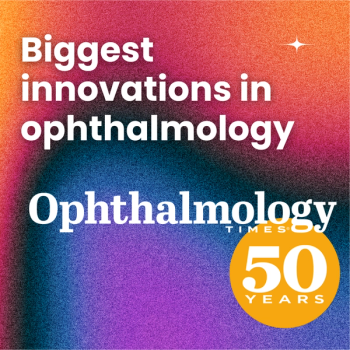
To mark Ophthalmology Times' 50th anniversary, we invited top experts to reflect on the most significant innovations in ophthalmology over the past five decades.